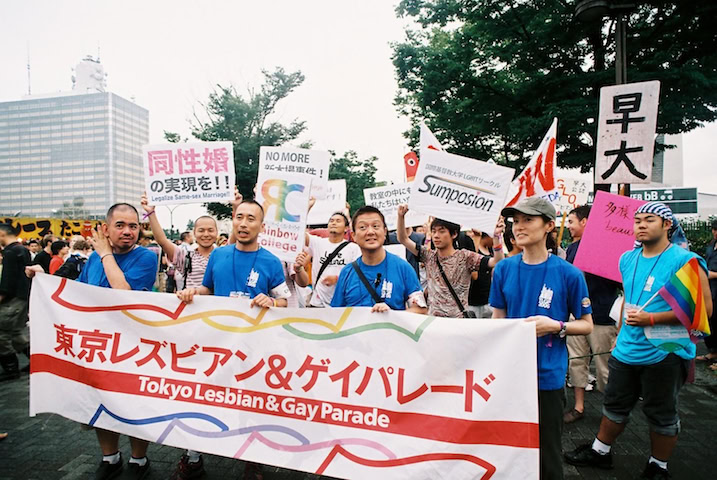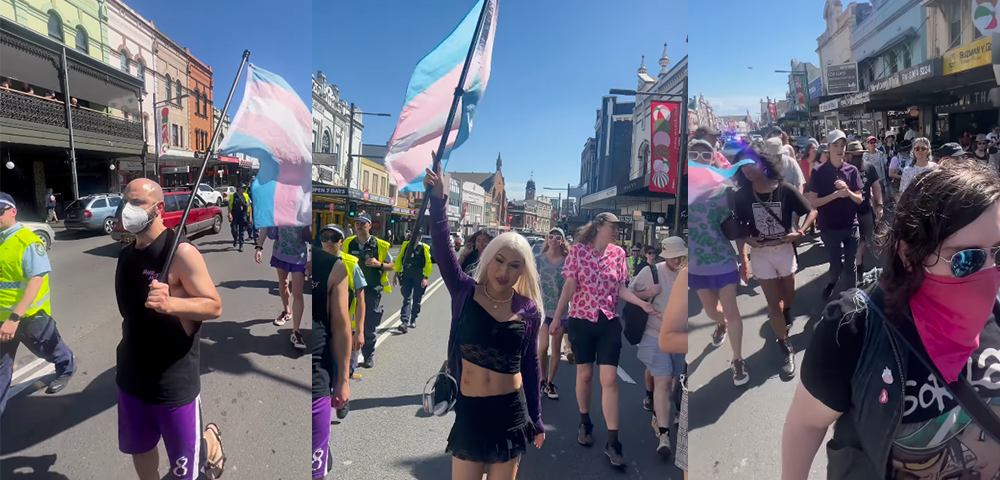
American gay man sues Japanese govt over partnership visa rights

An American man who married his same-sex Japanese partner in the United States has sued the Japanese government on Thursday, demanding it grants him long term residency status and the same rights that a heterosexual couple would receive.
Living together in Tokyo, US national, Andrew High and his Japanese partner, Kohei, who withheld his last name, are seeking 11 million yen ($148,110 AUD) in damages in a suit filed with the Tokyo District Court, reported The Japan Times.
According to Japanese law, foreign nationals married to Japanese citizens in heterosexual marriage are granted long-term residency upon arrival in Japan. However, those in same-sex marriages are not.
Long-term resident status, granted by the justice minister in consideration of special circumstances, can stretch from one to five years. High is still on a short-term visa that expires next month and will face deportation if the Japanese government refuses to renew it.
The plaintiffs’ lawyer, Masako Suzuki said that not allowing her clients to have a “family life,” is not only discriminatory, but also hypocritical.
“It would be discriminatory if my two clients cannot live together in Japan, while a foreigner who marries a Japanese person of the opposite sex can acquire [long-term] resident status,” she said.
“It’s violating their constitutional rights and also international conventions, because it’s an infringement of their right to have a family life.”
Japan remains a deeply conservative on the issue of marriage, with the nation’s constitution holding that marriage is between a man and a woman. Despite nearly two dozen Japanese wards, towns and cities issuing certificates recognising same-sex partnerships, these permits lack legal standing.
A former software engineer, High has lived in Japan sporadically with Kohei since 2009 and has unsuccessfully applied for long-term residency five times since 2018.
According to the suit, High met his Japanese husband 15 years ago in the United States and were married in 2015 following the legalisation of same-sex marriage in the landmark US Supreme Court decision. This union, however, is not recognised in Japan due to the same-sex coupling.
This lack of recognition ensures a violation of fundamental rights no matter how the couples chooses to proceed from here, according to Suzuki.
“If they’re separated because he has to leave Japan, it’s a violation of their right to have a family life. But then if his Japanese husband has to leave Japan so they can live together, it’s a violation of his right as a Japanese citizen to live in Japan,” she said.
However, Suzuki noted that she was hopeful for High and Kohei because of recent legal cases, including one in March in which a Taiwanese gay man was be granted special residency and allowed to stay with his Japanese partner following the revocation of a deportation order for overstaying his visa.
A Southeast Asian transgender woman was also granted long-term residency earlier in August due to her same-sex partnership which had started in 2002. Transgender people are rarely legally recognised by their respective gender identity in Japan, leaving many trans couples unable to marry as well.
On Valentine’s Day earlier this year, 13 Japanese same-sex couples filed lawsuits in at least four cities, saying the government was violating their constitutional rights to equal and fair treatment.









